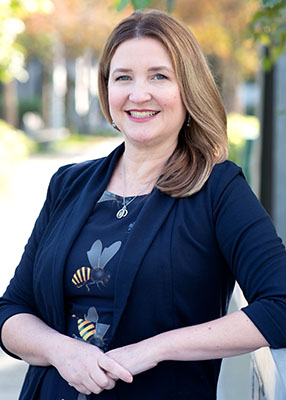Laila Ferreira
Research / Teaching Area
Education
Ph.D. English Language and Literatures, The University of British Columbia
M.A. English (Print Culture 1700-1900), Simon Fraser University
About
Dr. Ferreira’s pedagogical practice and research is informed by her background in print culture and interest in how media and communication processes intersect with human sensation, perception, and understanding. Her approach to the teaching and learning of academic discourse and communication is interdisciplinary and grounded in rhetorical genre theory, writing studies, literary theory, disability and gender studies. Students in her academic research and writing courses in ASRW and Vantage college at UBC develop an understanding of the relationship between writing and its contexts and leave with the tools needed to recognize and analyze the situatedness of all communication.
As a member of the UBC community, Dr. Ferreira has participated in cross-campus initiatives related to innovative pedagogy, the first-year student experience, and inclusive teaching and course design that work to support accessible teaching practices for the full inclusion and success of a diverse student body. This includes Dr. Ferreira’s co-design of workshops and contribution to resources on the principles of Universal Design for Learning (UDL) as well as participation in interdisciplinary communities of practice on Indigenizing and Internationalizing the curriculum. As co-chair of the First Year Experience Educator’s Symposium, Dr. Ferreira led a team of faculty and staff from a range of different disciplines and departments to design, plan and organize the symposium as an opportunity for professional growth and community development for educators who teach and support first-year students.
Dr. Ferreira’s educational leadership activities are complemented and informed by her research in the areas of the Scholarship of Teaching and Learning and writing studies. Dr. Ferreira is co-researcher on studies that address the learning experiences of students from marginalized communities in the academic research and writing classroom (low-socioeconomic status, Disabled, International, Indigenous, LGBTQ) and the incorporation of UBC developed teaching technologies such as ComPAIR as well as inclusive teaching theories and practices such as UDL, Self-Regulated Learning, and Active and Accessible teaching. Dr. Ferreira’s current research in writing studies is a co-developed project on the language of gender in research writing on facial recognition software.
Through her research, pedagogical practice and educational leadership, Dr. Ferreira aims to create teaching and learning conditions that empower all students and instructors as collaborators in the processes of scholarly knowledge production and exchange, including reforming these processes for an inclusive and accessible university.
Teaching
WRDS 150 Research Areas
Disability (WRDS 150A)
What are the definitions of a disabled body and mind? How were these definitions established and how have they impacted the ways in which we structure our society, from the design of our buildings and city streets to our education system and employment practices? In this section of WRDS 150A, we will grapple with these questions and more through the analysis of research articles from a range of Arts disciplines on the topic of disability. More specifically, we will look at how each discipline’s methods of research and style of writing reflect their definitions of disability and the kinds of knowledge they produce on the topic. Students will have the opportunity to engage in research and research writing on a Disability related topic that is of interest and importance to them.
Inclusive Design (WRDS 150B)
This section of WRDS 150B will take as its focus the concept of Inclusive Design. We explore how inclusive design is defined, what it involves and how it impacts the work that scholars do in Science, Math, Engineering, and Computer Science. Throughout the term, we will evaluate the scholarly research and writing practices of STEM fields through academic articles about the application of inclusive design principles to a range of topics and design projects. Students will have the opportunity to produce research and research writing that explores current knowledge about inclusive design well as the future possibilities of inclusive design in STEM.
